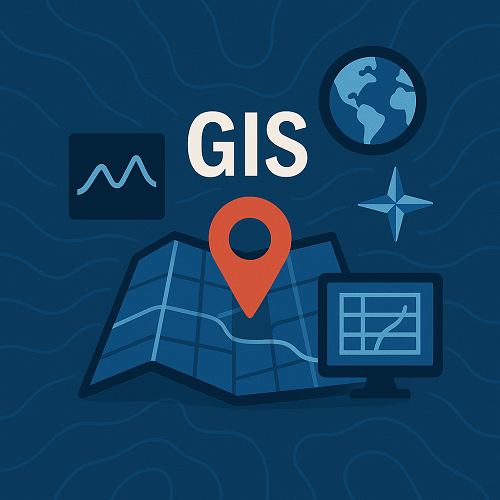Are you looking for ways to improve the success of your business? Look no further than GIS technology. GIS, or geographic information systems, is a technology that uses spatial data to create detailed maps and analyze relationships between different pieces of information. With its advanced abilities, GIS is revolutionizing industries and providing businesses with the tools they need to stay ahead of the competition.
The applications of GIS technology are vast and varied. In the energy sector, GIS helps companies locate and map pipelines, wind farms, and other energy sources. In the healthcare industry, GIS can help identify patterns in the spread of disease and assist in emergency response efforts. In the real estate industry, GIS is used to analyze market trends and develop strategies for property development.
GIS technology also plays a crucial role in the transportation industry. With advanced routing algorithms and real-time traffic data, GIS helps streamline delivery routes, reduce fuel consumption, and improve customer satisfaction. In addition, GIS is used in the construction industry to optimize project planning and project management workflows.
So how can you incorporate GIS technology into your business? The key to success with GIS is to find the right application for your specific industry. Whether you are in healthcare, energy, transportation, or real estate, there is a GIS solution that can help organize data, streamline processes, and improve overall efficiency.
One example of GIS technology in action is the use of mobile GIS in the insurance industry. By leveraging GIS data on mobile devices, insurance adjusters can quickly and accurately assess damage from natural disasters and other events. This technology helps insurers save time and money while providing better service to their customers.
In addition to the benefits seen in individual industries, GIS technology also has broader social and environmental implications. By promoting smarter use of resources and reducing waste, GIS can help create a more sustainable future. Additionally, GIS technology can be used to empower underserved communities and improve access to social services.
In conclusion, GIS technology is transforming the way businesses operate and providing innovative solutions to complex challenges. By leveraging GIS tools and applications, businesses can improve efficiency, reduce costs, and stay ahead of the competition. Whether you are in healthcare, energy, transportation, or real estate, there is a GIS solution that can help you achieve greater success.
FAQs
1. What is GIS technology, and how does it work?
GIS, or geographic information systems, is a technology that uses spatial data to create detailed maps and analyze relationships between different pieces of information. By using advanced algorithms and data structures, GIS can help businesses visualize and analyze complex information in new ways.
2. What industries can benefit from GIS technology?
GIS technology has applications in a wide variety of industries, including healthcare, energy, transportation, construction, and real estate.
3. How can GIS technology help improve business efficiency?
GIS technology helps businesses organize data, streamline processes, and improve overall efficiency. By optimizing workflows and reducing waste, businesses can save time and money while delivering better products and services.
4. What are some examples of GIS technology in action?
Examples of GIS technology include mobile GIS in the insurance industry, GIS mapping in the energy industry, and GIS routing algorithms in the transportation industry.
5. How does GIS technology contribute to a more sustainable future?
GIS technology helps promote smarter use of resources and reduce waste. By improving efficiency and accuracy in decision-making, GIS technology can help businesses and communities create a more sustainable future.
